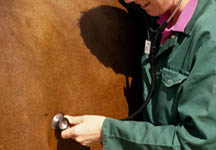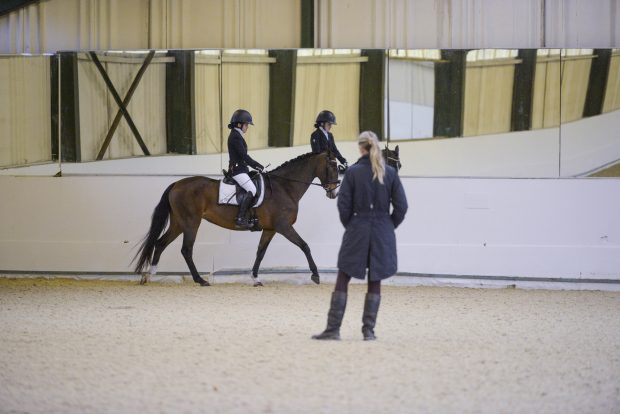View horses for sale
Find a horse dealer near you
I bought my first horse, a 16.1hh eight-year-old bay gelding, in August. He has exceptional stable manners and a lovely personality. Although I live in Hampshire, I bought him from a horse dealer in Scotland via the internet, with the intention of continuing my side-saddle riding and show jumping.
Before buying the horse, a BHSII friend and I both rode him and I was shown papers from a stage two vetting he’d passed two months earlier. The horse dealer said the original passport had been lost, so he’d got a duplicate.
One month after the horse was delivered, he showed signs of having a bad back, so we started to get him physiotherapy treatment. Subsequent X-rays showed that he has “bridging vental ossification” of the spine, or kissing spines, which is a permanent, untreatable condition. The vet’s advice was that he should not be ridden again.
We informed the horse dealer that the horse was no longer useable – the one thing we didn’t have insurance cover for – but the dealer refused to take the horse back and give us a refund.
I have discovered that the Scottish small claims court has a maximum claim sum of £750, which is less than the price paid for the horse, and I don’t know what I can do now.
HW
We contacted experienced equine solicitor John Armstrong, of Smail & Ewart, which is based in Biggar in the Scottish Borders, for legal advice.
He stated: “As the seller is a horse dealer, the Sale of Goods Act will apply and the buyer is entitled to a horse of merchantable quality.
“Provided the buyer’s vet is prepared to confirm that the gelding has kissing vertebrae, and that it was a pre-existing condition he was suffering with prior to purchase, the reader is entitled to reject the horse and get their money back. Failing acceptance of this by the horse dealer, the buyer’s remedy would be to pursue him through the Sheriff Court in an Ordinary Action.
“With regard to internet purchases, protection is offered by the Consumer Protection (Distance Selling) Regulations 2000, which came into effect on 31 October of the same year. The regulations give rights to consumers and impose obligations on businesses that enter into distance contracts. Most importantly, they provide a cooling off period of seven days, whether or not there is anything wrong with the goods that have been purchased.”
Information
For equine legal advice relating to Scottish law, contact Smail & Ewart
Tel: 01899 220058
This Q&A was first published in Horse & Hound (14 December, ’06)
Looking for horses for sale?
Find a horse dealer near you
Get top tips on buying horses
Buying a new horse? Compare insurance prices at horseandhound.co.uk/insurance




